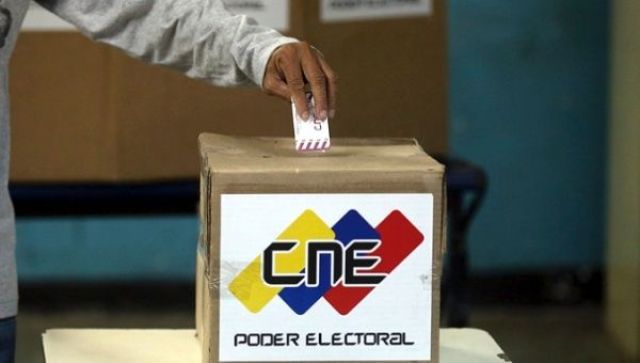
President Nicolás Maduro’s United Socialist Party of Venezuela (PSUV) won 17 of 23 states in Sunday’s gubernatorial elections, the National Electoral Council (CNE) has confirmed, Venezuelanalysis.com reported on October 15.
According to CNE President Tibisay Lucena, 61.14% of Venezuela’s 18-million-strong electorate came out to vote, marking a record participation in the country’s regional elections, second only to the 65.45% turnout in 2008.
The result defied forecasts of high abstention fueled by the current economic crisis as well as polls showing dissatisfaction with the leadership of both the government and political opposition.
With 95% of all votes counted, the governing PSUV won in the states of Amazonas, Apure, Aragua, Barinas, Carabobo, Cojedes, Falcon, Guarico, Lara, Miranda, Monagas, Sucre, Trujillo, Yaracuy, Delta Amacuro, and Vargas.
For its part, the opposition Democratic Action party triumphed in Anzoátegui, Merida, Tachira, and Nueva Esparta, while the First Justice party took the strategic northwestern border state of Zulia. The CNE has yet to release final results for the mineral rich Amazonian state of Bolivar in the country’s southeast border.
The PSUV won 54% of the total vote, marking a significant recovery since the ruling party’s landslide defeat in the 2015 parliamentary elections when it garnered only 43.7% of the vote. The pro-government upswing follows on the heels of July 30 National Constituent Assembly (ANC) elections, in whichmore than 8 million people turn out to vote amid deadly opposition protests and escalating US pressure.
The CNE indicated that the right-wing opposition coalition, the Democratic Unity Roundtable, won 45% of votes, amounting to a loss of 2.7 million votes relative to 2015.
Speaking late Sunday evening, President Maduro welcomed the result, vowing to work with the newly elected opposition governors. “I extend my hand to the opposition governors to work with them for the peace and calm of the country,” he declared.
The head of state likewise called on the CNE to carry out a “100 percent audit” of all paper ballots from Sunday’s vote. Under Venezuela’s electoral system, every electronic vote is backed up by a paper ballot, 50 percent of which are by law subject to recount in any given electoral cycle.
Despite scoring important victories in several key states, the MUD responded to the CNE announcement by refusing to recognize the results, alleging “fraud”. In a press conference early Monday morning, MUD campaign head Gerardo Blyde rejected the outcome as “not reliable”.
Blyde cited the CNE’s controversial decision announced several weeks ago to relocate 274 voting centers – predominantly located in opposition areas and targeted by anti-government violence during the July 30 ANC vote– which he claimed impacted 700,000 people. Blyde urged opposition candidates to mobilize their supporters in the streets in the coming days to put pressure on the nation’s electoral authority.
On October 16, TeleSUR English said that US Ambassador to the United Nations, Nikki Haley, cast doubt on the results of Venezuela's Regional Elections where candidates from the governing Socialist Party won a vast majority of seats, claiming the vote was not "free and fair."
"An election is only legitimate if it is free and fair, and from the start, this was neither," Haley said via the US mission to the United Nations Twitter account.
However, Venezuelanalysis.com said the same day that the Latin American Council of Electoral Experts (CEELA) has confirmed that Sunday’s vote in Venezuelan gubernatorial elections was clean and transparent.
“The vote took place peacefully and without problems… the vote reflects the will of [Venezuelan] citizens,” declared CEELA President Nicanor Moscoso during a press conference Monday morning.
The CEELA delegation was comprised of 1300 international observers, including former Colombian Electoral Court President Guillermo Reyes, ex-president of the Honduran Supreme Electoral Court, Augusto Aguilar, and former Peruvian electoral magistrate Gastón Soto. According to the body’s report, the vote was held under conditions of “total normality” and the right to a secret ballot was “guaranteed”.
CEELA also reported that it has yet to receive any formal denunciations from the opposition, which has issued its fraud allegations via the media.
the elections, and the criticism from the US and US-backed opposition, comes as the Trump administration has taken an increasingly aggressive stance against the Maduro government in recent months, imposing economic sanctions, decreeing a travel ban on Venezuelan officials, as well as threatening military intervention and an embargo.